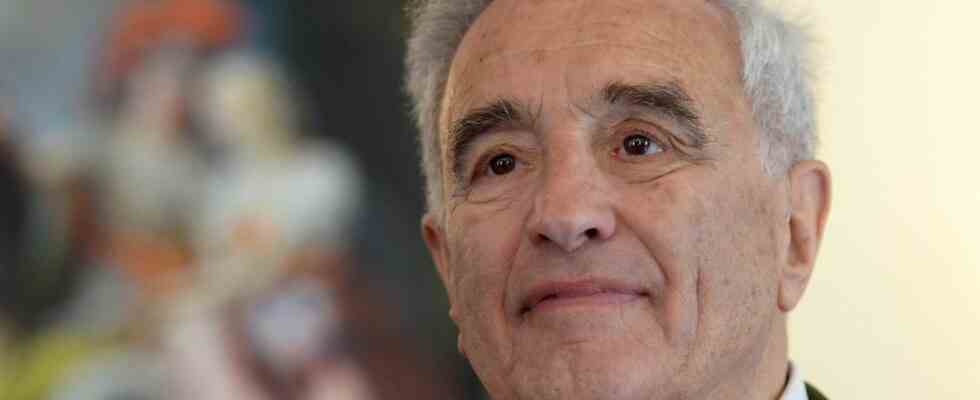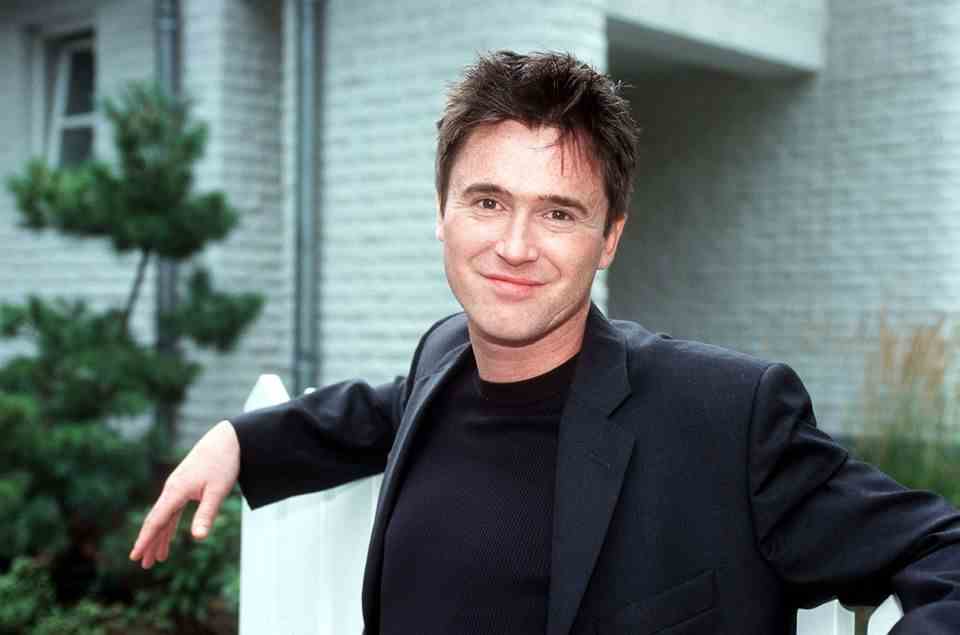mourning for actors
Michael Degen died at the age of 90
Actor Michael Degen died in Hamburg on Saturday
© Hendrik Schmidt / DPA
Mourning for Michael Degen: The actor died at the age of 90. He was most recently familiar to a large TV audience thanks to the “Donna Leon” crime series.
The actor Michael Degen is dead. The 90-year-old died on Saturday in Hamburg, as the Rowohlt publishing house announced on Tuesday in Berlin. “We mourn and bow to a person and artist who touched and carried away with his warmth and enthusiasm, and whose diverse work will remain,” it said.
Michael Degen embodied the “Vice-Qustore Patta” for years
Degen was recently familiar to a large TV audience, mainly thanks to the ARD crime series “Donna Leon”. In it he embodied the “Vice-Qustore Patta” for years. In the course of his acting life he slipped into many roles. He has worked with great directors such as Peter Zadek, Claude Chabrol and Ingmar Bergman and also directed films himself.
An actor is always in danger of losing his sense of his own personality through his empathy with many role characters Michael Degen once in conversation with the German Press Agency. He himself was only able to save himself from this by temporarily accepting fewer offers and looking for other tasks such as writing. Nevertheless, Degen, born in Chemnitz in 1932, managed to become one of the most respected and popular actors in the country with a wealth of extremely different theater, film and television roles.
Federal President Steinmeier: “Your biography reflects the abyss of German history”
Degen also managed to cause a stir as an author – with often autobiographically inspired books such as “Not All Were Murderers. A Childhood in Berlin” (1999). In the story filmed by Jo Baier for ARD in 2006, Degen tells of events that would haunt him throughout his life: His Jewish father Jakob, a language professor and businessman, died in 1940 as a result of his imprisonment in Sachsenhausen concentration camp.
In order to avoid being deported, Michael and his mother Anna spent some years of the war as so-called “U-boats” in Berlin – hiding with helpers, whom Degen gratefully recalls in his work. Decades later, in 1986, he had to experience that neo-Nazis ransacked his Hamburg apartment and that he received death threats after protesting against a meeting of SS veterans.
Federal President Frank-Walter Steinmeier congratulated him on his 90th birthday on January 31 and was impressed by his life. “Your biography reflects the abyss of German history. Despite everything that was done to you and your family, you did not turn away from Germany,” said the politician in Berlin.
In the dpa interview on his day of honor, Degen explained how much he was shocked by the resurgence of right-wing forces. “The fact that young German Jews have to fear for their lives again, that anti-Semitism and racism cannot be eradicated leaves me with impotent anger.” And in view of his own commitment to this in books, roles and interviews, he added: “Believe me, this is not a satisfactory balance sheet after 90 years of life.”
From Shakespeare to “Dream Ship”
The actor, who last lived in the Hanseatic city with his third wife, a journalist, was generally present, most recently mainly on entertainment television – as the vain Vice-Questore Patta in the “Donna Leon” crime series of the first. But the actor has played everything – whether Shakespeare, Molière or Brecht, at the first houses in Berlin, Salzburg, Vienna, Munich or Hamburg.
Degen became known to a large TV audience in 1979 as Bendix Grünlich in Franz Peter Wirth’s “Die Buddenbrooks”. He dealt with the Nazi past in, among other things, Egon Monk’s “The Oppermann Sisters” (1983) and Michael Kehlmann’s “Secret Reich Matters” (1987), in which he played Hitler.
But the actor, who – as he once put it – had four children to feed, often appeared in audience hits: from “Diese Drombuschs” alongside Witta Pohl in the 80s and 90s to “Derrick” and “Clinic under the palm trees” to “Traumschiff” and “Rosamunde Pilcher”. It didn’t damage his reputation.
In Germany, Degen always liked to be on the German stages. In 1949, at the age of 17, after his studies and his first engagement at the Deutsches Theater Berlin, he emigrated to Israel at the request of his mother. There he served in the armed forces and performed in modern Hebrew at the Tel Aviv Kammerspiele. “What made me return in 1951 was my job,” he later explained in interviews.
He felt “great longing” to “once again be on stage in German”. Soon he was working in Brecht’s Berliner Ensemble in the eastern part of the city. However, Degen kept returning to the Middle Eastern country for filming and guest roles. To the end he was a German and Israeli citizen.


